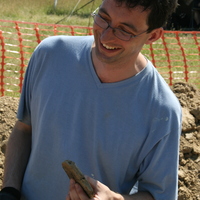The Annual Meeting for Postgraduates in Ancient History will take place here at Newcastle University on Saturday 19th March 2016.
Call for Papers
‘Messages and Media’
The world is full of messages. From text to images to sounds, messages dominate society, past and present. How can we explore this phenomenon in and through ancient history? What are media? Where is the message? AMPAH 2016, as usual, invites papers of all topics from postgraduate students of Ancient History and Classics, but in particular we would like to explore sending and receiving in the Ancient World whether through images and statues, through text, inscriptions, or the proverbial ‘writing on the wall’; from ‘putting on a show’, to performing in the public arena, how do we interpret their interactions? And how can we, as ancient historians, use media to ‘get our message across’?
Topics welcomed include, but are not limited to:
• Sending and Receiving
• Public Image
• Politics as performance
• Propaganda as medium
• Graffiti, papyrology, and non-elite media
• Music and poetry
• Popular culture in the Ancient World
• Public inscriptions
• Historiographical context
• Reception and recreation
• Messages to and from the gods
• Transmitting ideologies
• Rhetoric and media
• History and its message
Please send abstracts of no more than 300 words for papers of twenty minutes to ampah2016@newcastle.ac.uk by Monday 11th January 2016.
